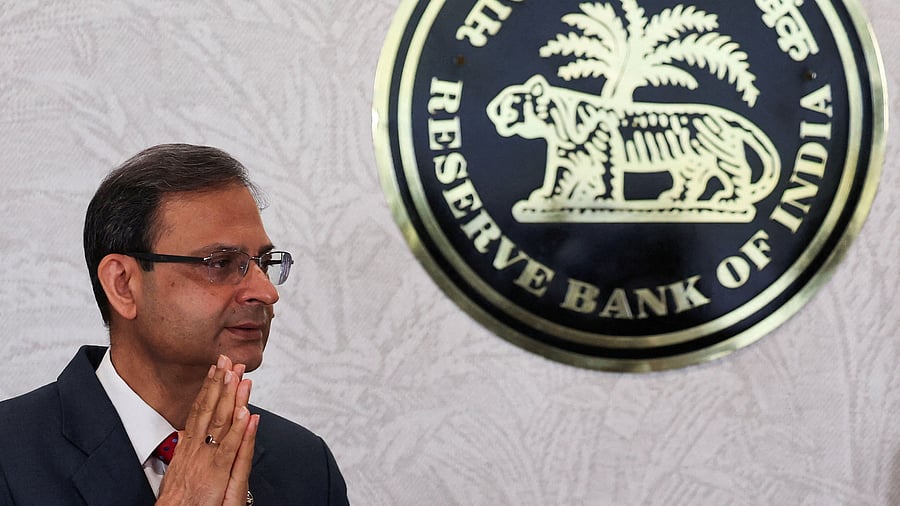
Reserve Bank of India Governor Sanjay Malhotra.
Photo: Reuters
Mumbai: After announcing a slew of measures centred around ease of doing business and relaxations of norms, RBI Governor Sanjay Malhotra asserted that financial stability is the foremost priority for the central bank.
Addressing the customary post-policy review press conference, Malhotra said the RBI is, however, cognizant of ensuring that regulations should not entail a cost which impedes economic growth.
"I do not think that you should see these measures as any kind of relaxation or kind of letting go of sight...from financial stability. Stability is foremost for us.
"At the same time, we have to be very careful. We have to ensure that we are not in any way impeding growth," the career bureaucrat-turned-regulator, who had promised to ease the cost of doing business for the financial sector right after taking over earlier this year, said.
"We need to continue looking at rationalising our regulations so that the productive needs of the economy are met with the least compliance burden with the least of cost while at the same time ensuring that wherever prudential measures are required, they are not compromised," the RBI governor said.
Earlier in the day, Malhotra announced the measures, like going back on draft proposals to allow banks to have arms engaged in similar businesses, fund acquisitions, lend more for initial public offerings, tweaking norms governing single borrower limits for infrastructure finance and also open up for urban cooperative banks licensing.
The moves taken on Wednesday are "very balanced, calibrated, considered" ones, Malhotra said, adding that some of the other measures are aimed at enhancing the flow of credit and improving the competitiveness of banks.
The governor explained that many moves are ones where the RBI had allowed a certain activity, but has now decided to expand on the same, pointing to moves like acquisition finance and loans against shares.
In the case of the fundamental changes in the forms of business front, Malhotra reminded that the RBI had earlier only come out with proposals in the draft framework and added that the decision to relax was taken from a perspective where the RBI does not wish to micromanage.
Deputy Governor MR Rao said the RBI is still left with supervision and macroprudential tools that can ensure stability.
Malhotra said the share of large corporates in the overall banking books has reduced by ten percentage points in the last decade and added that even after the relaxations, the RBI still has levers to ensure stability.
Rao also reminded that the Rs 20 lakh limit on loans against shares was set in 1998, and raising the same to Rs 1 crore does not make it a significant increase after accounting for inflation.
Malhotra said discussions have also happened at the Financial Stability and Development Council (FSDC), wherein it was decided to review regulations every five years.
"See, circumstances change, times change, requirements change, and so nothing should be frozen in time. So that's why we had earlier also said that we will be continuously reviewing our regulations," he said.